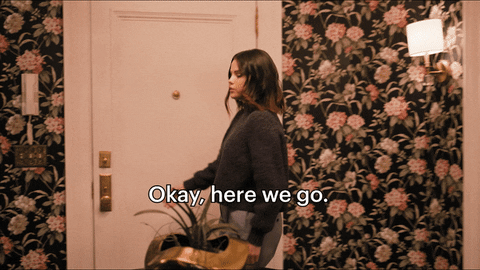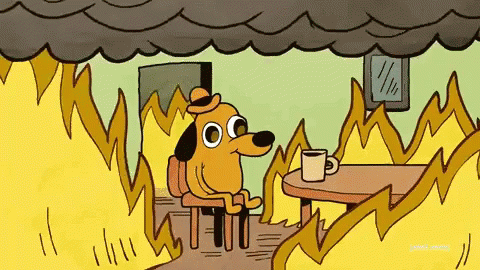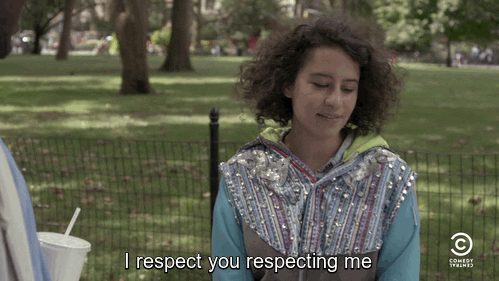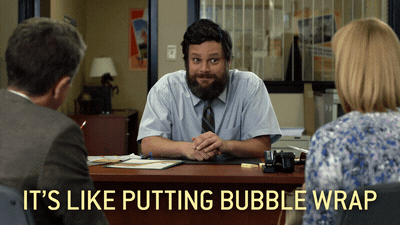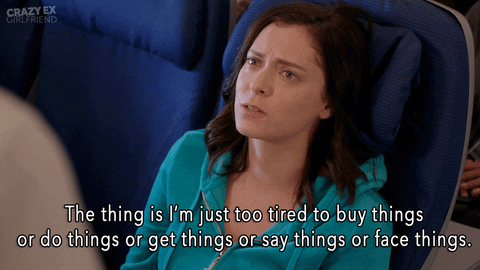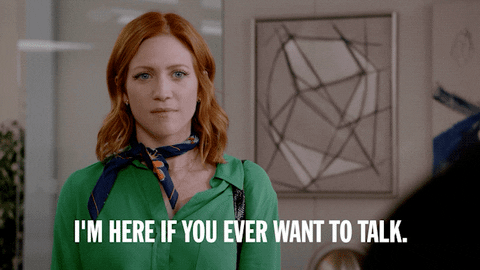Where is My Mind?
Way out in the water, see it swimming
Because I am now a paranoid person, here’s my disclaimer: These thoughts and opinions are all mine, and are not any official representation as a company leader, employer, or any representative of any companies I’ve previously worked at. Phew. Glad we got that out of the way 🎉
I’ve wrestled with the decision to pen down these words, to be this open and transparent and vulnerable. Selfishly, I’ve felt disclosing any sort of issue would put a scarlet letter on my chest, so I’ve written, deleted, and rewritten this post at least 20 times. Yet, the significance of this issue, the importance of discussing mental health within Trust & Safety, has remained unshakable. And with Suicide Awareness Month upon us, there’s no better time than the present to broach this subject.
Like so many of my peers, I struggle. And not in the basic “I’m on the struggle bus” kind of way because too much work has piled up (though I have those days too!) but also because I have a few bonafide, doctor-prescribed issues. Most prominently in my brain cocktail is a genetic mood disorder that I cannot help or change. Statistically, I have a 20% chance of dying by suicide. So that sucks. I try not to think about it too closely.
When I joined Trust & Safety for the first time, I was coming off of the worst year of my life. Personal circumstances threw my entire world into chaos, and I came face to face with whether or not I wanted to be alive anymore. Believe me when I say that stumbling into Trust & Safety at that precise moment felt like serendipity.
The good news is I’m high functioning. The bad news is I’m high functioning. I bootstrap my way through any struggle no matter how painful and put off any sort of help for as long as humanly possible. I’m fine, this is fine, everything’s fine is my daily motto. I ride each wave of feeling “good” with the fervent hope it will never ebb. But when it inevitably does? I soldier on until I’m so depleted, I can’t see up from down, and all I can possibly process for the next few days is reality television. And usually I hear a lot of “are you okay”s during this time because just keeping my head above water while it feels like someone is actively trying to drown you is hard.
In our industry, we toss around terms like “resilience”, “wellness”, and “well-being” quite a bit. But we rarely dive into the nitty-gritty of brain chemistry, and what happens when someone with pre-existing mental health issues decides to jump into the world of Trust & Safety.
If I could share one piece of advice, it’s this: never underestimate those of us with pre-existing mental health conditions just because we have these conditions. Many of us have developed some pretty robust coping mechanisms over the years that are directly applicable to T&S work. While there may be unique challenges, treating individuals with pre-existing mental health disorders or illnesses or issues should follow the same behavior principles we apply to anyone different from ourselves - treat them with respect, kindness, and understanding.
The truth is, accommodations for those with pre-existing mental health conditions can vary widely because there’s no one-size-fits-all solution. I know now that working from home is a godsend for me; it offers me the kind of relief I can’t get from being in an office all day, every day. And you know what? That doesn’t make me a subpar employee; it makes me a differently abled one.
Recognizing this about myself has taught me not to accept positions that require me to be an in office for 8 or more hours a day. This was in no small part a reason why I left Roblox, which is objectively a great company - but the company culture is to have everyone in office, and there was only so long I could push that off.
Now that I work from home, I don’t spend fifteen minutes in my car, trying to psych myself up to go into an office building, battling back a lifetime of anxiety. Instead, I take five seconds before hopping on a Zoom call to take a deep breath, or I turn my camera off when my anxiety is full tilt.
Living with a mood disorder occasionally means that there are days where I’m just… off. It’s like my brain transforms into Dr. Jekyll and Mr. Hyde. I might find myself shorter with people or less interested in playing the game of corporate politics. On those days, I’ve become adept at asking my team to hold the mirror up for me - “was I an asshole today?” That’s what support looks in my world - having people I trust to tell me when I’m a little too spicy so I can course-correct or offer an apology. And when you’re depending on an unreliable narrator that is your own brain, you learn the art of assuming positive intent from others because the odds of misinterpreting a situation are remarkably high. Consequently, I’ve made an effort to double-down on building my empathy skills, which allows me to consistently work to understand things from others’ viewpoints. This is especially important in times when I’m running low on energy and can’t fully trust my own perception.
I’ve had conversations with people, thoughtful, kind, considerate people, that ask me if those with pre-existing mental health issues can handle T&S work given these differences in brain chemistry. My resounding answer is, yes, a thousand times yes! We should never write off an entire group of people due to factors outside of their control. The sentiment I’ve encountered repeatedly among others who may share some form of atypical brain chemistry is that compartmentalization is second nature - that, in order to function, you must become Herculean at coping. I can vouch for this from my own journey: if you’re dealing with a pre-existing mental health condition, you become pretty skilled at pushing forward even when things are terrible.
And for someone like me, who sometimes grapples with the existential “what’s it all for?” question, working in T&S provides a profound sense of purpose. What’s it all for? Well, it’s for this - for upholding democracy, for saving lives, for helping in times of crisis, for making sense of a world that tries to eat itself, and to see people stand together and say no, this isn’t the world we want for ourselves, our loved ones, our future. For those of us who are neurodiverse in one way or another, tapping into that sense of purpose and offering hope for positive change is nothing short of extraordinary.
At least one person you know is dealing with a mental health condition, be it generalized anxiety disorder, depression, or something else. According to the WHO, depression is the leading cause of disability worldwide, affecting over 280 million people worldwide. They’re not confined to the margins of society; these are our colleagues, friends, and family members. So when we discuss these issues in vague terms without acknowledging that some of our team members already have their own struggles separate from the horrors of the internet, we’re missing the bigger picture.
Companies can play a significant role by offering remote or highly flexible job options beyond engineering. For those that do come into the office, creating a dog-friendly environment can allow employees to bring emotional support animals to work without being singled out. Or consider starting an internal peer-to-peer program for support, similar to what Google did with Blue Dot.
Some managers with exceptionally low EQ might overlook team members who are visibly struggling. It’s okay to ask your team if they’re okay, but be ready to genuinely listen to their responses. To create a psychologically safe environment for your team, give them the space to honestly share what they’re going through. Not every one-on-one needs to be a status update; sometimes, it’s a chance for them to open up.
In my opinion, the most crucial step a manager can take is to destigmatize mental health and mental illnesses. Grant mental health days without repercussions or the expectation of immediate availability. Talk about therapy as if it were as normal as going to the dentist. Encourage all team members to prioritize standing appointments with mental health professionals, emphasizing that it’s perfectly acceptable for them to take the time they need to attend these medical appointments. Because they are medical appointments. Full stop.
We all have our unique quirks, and that includes our mental health. But those quirks are what make us who we are, and they’re not a reflection of our potential to work alongside our T&S peers. Besides, what’s normal? It’s a made up term which no one fits into anyway.
For more information on Suicide Awareness Month, or to learn the signs and symptoms, visit NAMI’s excellent support center.

